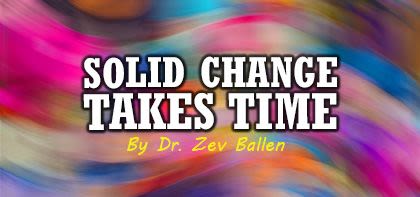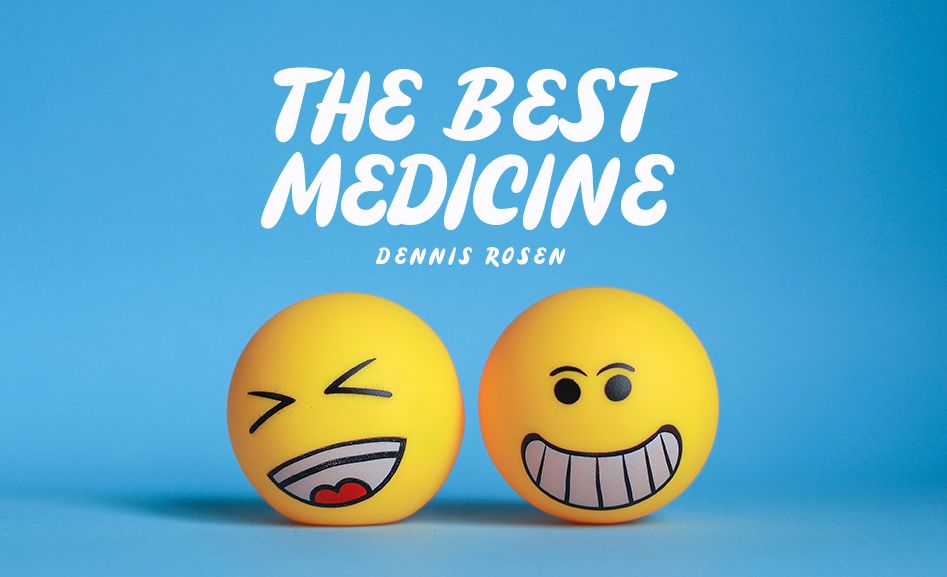
Solid Change Takes Time
We’re a generation of speed. Whatever we do, we do it fast, and the faster we can do it the more praiseworthy we are in this digital age of Babel incarnate…

We’re a generation of speed. Whatever we do, we do it fast, and the faster we can do it the more praiseworthy we are in this digital age of Babel incarnate, perhaps the most arrogant age of vindictive “triumph” over G-d and emuna that ever “lived”. The more unfeeling lightning-speed efficiency you can generate, the more accurately you can emulate the machines that control your life, and the more valued and praised you will be in this sick world. A slow computer is something to be despised. Can you close your eyes for even one moment now and hear the tumultuous ear-piercing racket of billions of impatient computer-mice clicking together in a sound that foreshadows disaster?
Look no further than your own life. You’re squeezed for time. It takes time to brush your teeth and even more time to floss them. Showering, dressing, sitting down when you eat, reading, praying, THINKING – all take time! Without time to think we are running away from the internal treasure that we already possess. The human race is racing against time, so blinded by the seduction of speed that they can’t make contact with the delightful, serene, unchanging presence of Hashem that lives within them. Imagine running from such a Treasure. This is what we’ve learned from the nations of the world.
Michelle was sick of this way of life. She became a Noahide. She believes in Hashem and faithfully lives by the Seven Noahide Laws. She discovered emuna through the teachings of Rabbi Shalom Arush and Rabbi Lazer Brody. Michelle, however, like most of us, is a product of the Age of Speed, and so, even when it came to spiritual growth that must be worked for and cultivated carefully over time, she wanted emuna and she wanted it fast!
Michelle has a history of severe bouts of suicidal depression. Fifteen years ago, Michelle’s illness began. She heard “voices” telling her to end her life. For her own protection, Michelle was emergency-admitted  to the psychiatric wing of a local hospital. Michelle was given medication that helped her return to work and resume being a mother to her five children. Two times during those years, Michelle attempted to wean herself off her psychiatric medication but was unable to do so. On both occasions, only days after stopping her medication, her mood rapidly, dangerously spiraled down until she was in what’s called a vegetative catatonic state – she stopped speaking, eating, and hardly moved at all. Lying in bed, statue-like, Michelle would cry for days until her children finally brought her to the hospital. There she was given the medicine she needed (through injection). Still it took her many months to recover, even after the medicine had reached a therapeutic level in her body.
to the psychiatric wing of a local hospital. Michelle was given medication that helped her return to work and resume being a mother to her five children. Two times during those years, Michelle attempted to wean herself off her psychiatric medication but was unable to do so. On both occasions, only days after stopping her medication, her mood rapidly, dangerously spiraled down until she was in what’s called a vegetative catatonic state – she stopped speaking, eating, and hardly moved at all. Lying in bed, statue-like, Michelle would cry for days until her children finally brought her to the hospital. There she was given the medicine she needed (through injection). Still it took her many months to recover, even after the medicine had reached a therapeutic level in her body.
When Michelle contacted me, she had already stopped her medicine again. As before, it didn’t take long before her mental condition began to decompensate. She was already crying excessively and spending more time in bed than with her kids. Her children made an appointment for her with a psychiatrist, but she refused to go because, to her, that would mean her emuna was very weak. Even as she felt herself slipping back into the darkness of severe depression, she wanted to know from me if agreeing to meet with the psychiatrist and going back on medication would mean she didn’t trust that Hashem could cure her. Michelle had already suffered too much to be seduced by the lure of faddish psychotherapy techniques that boast fast one-session cures, guaranteed or “your money back”. She wasn’t about to be conned into banging a pillow with a tennis racket and losing another six months of her life–even if the promise of a cure came with “100% money-back guarantee!”
But emuna is different, she argued. She told me that she had been doing personal prayer for one hour every day for more than a year. She wanted to know why she needed to stay on medication. She wondered why her prayers were obviously not enough to stop the depression from coming back even after a year!
I commended her on her efforts to integrate emuna and prayer into her life but told her that she obviously wasn’t ready to go off medicine and that I was sure that Rabbi Shalom Arush, my mentor in these matters, would tell her the same thing. I explained that when Rebbe Nachman of Breslev told people to not go to doctors, some 200 years ago, he was not speaking to people like us; he was speaking to an elite group of his students (all miracle workers in their own right) who had reached their very high levels of emuna after years of intensive study and prayer. I told her that if Rebbe Nachman were alive today I was certain he would tell her to keep her appointment with the doctor and that is also exactly what Rabbi Arush would tell her to do.
Michelle wanted to be sure. She wanted to hear the opinion of Rabbi Shalom Arush herself, so I forwarded her question to him and this is how he answered her: The Rav encouraged Michelle to continue building herself with faith, but to accept that Hashem did not yet want her to stop her medication. He said this didn’t mean that Michelle should tell herself she had an incurable illness and was doomed to take medicine for the rest of her life. The Rav wanted to reassure her that with commitment and effort it was still possible for her to stop the medicine someday.
A decision to stop one’s psychiatric medication should never be made without a joint consultation with a qualified rabbi and mental health professional. The reason for this is that the evil inclination is too clever for most of us. If Adam, the first man, who was like an angel before his sin, could be seduced to think that with one quick bite of an apple he could acquire the secret to all knowledge and wisdom of the world, who are we to think that we can purchase emuna like a T.V. dinner? The favorite trick of the evil inclination is to keep us spinning like tops to do everything in auto-pilot flash mode. He knows that in a state of extreme commotion we can’t be in touch with ourselves or with Hashem. But this is not the way of the Torah, which is called the middle way, the way of moderation. Feelings can’t be rushed. Forced behaviors that don’t come from values and beliefs that have been clarified and integrated over time will topple over as Adam toppled when his quick-fix attempt to move too fast only swelled his head in arrogance. He took a bite, his head swelled, he became top-heavy, and this led to his fall. (Midrash).
From one-minute oatmeal to “Facebook Depression” to impulsive morally bankrupt “relationships” to a 60% divorce rate and addictions of all kinds, the nations of the world don’t live in the middle; they live in the “exciting” extremes. But there are no short-cuts in life, especially when it comes to avodat Hashem (serving the Creator). To live with complete emuna requires a total shift of identity and lifestyle. One’s entire outlook on life must change and this can’t be done in a few hurried minutes.
For a person to receive the light of Hashem, the person cannot be in a state of fast movement. His or her soul must be in a state of calmness like kol demamah dakah, a subtle, quiet voice. The quickest way to get to Hashem is still by going step by step, building incrementally and not jumping to the next step until you are advised to do so by a competent spiritual guide. This is true not only for people with a psychiatric history but also for all of us.










Tell us what you think!
Thank you for your comment!
It will be published after approval by the Editor.